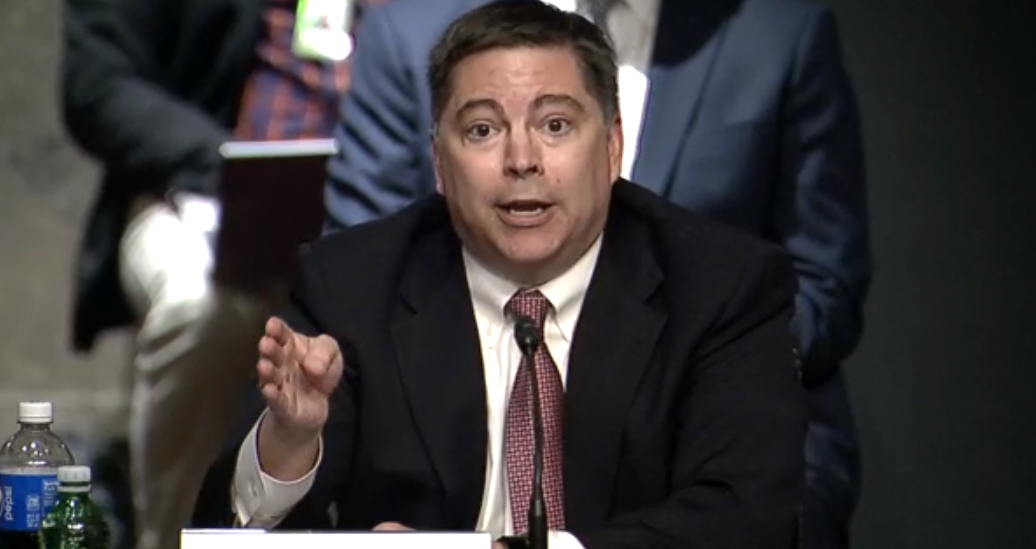FCC's O'Rielly Has Parting Shot (in Arm) for Broadcasters
Recommends lifting more "real burdens" on industry

The smarter way to stay on top of broadcasting and cable industry. Sign up below
You are now subscribed
Your newsletter sign-up was successful
Exiting Republican FCC commissioner Michael O'Rielly isn't going without a final push for more broadcast deregulation.
In a blog post, O'Rielly, whose re-nomination was withdrawn by the President after he criticized a social media regulatory effort the President is backing,
He praised FCC chairman Ajit Pai's media modernization program efforts to date, which he said had allowed "real" burdens imposed on broadcasters to be lifted so they could better serve their viewers and the public interest.
Related: Trump Rescinds O'Rielly Nomination
But he said much work remains to be done. He offered up some things the FCC could do quickly to "improve the plight of struggling broadcasters," adding: "As many broadcasters seek to rebound from the double-whammy of COVID-19 and asymmetric competition from unregulated internet-based providers, these reforms are more critical than ever."
Among his suggestions:
1. Lift the freeze on TV station tech upgrade applications which was imposed in advance of the incentive auction. "Now that the repack has essentially concluded, stations should be permitted to start filing applications for needed upgrades," he said.
The smarter way to stay on top of broadcasting and cable industry. Sign up below
2. Update the failing station waiver criteria. The FCC allows common ownership of stations that would otherwise violate local ownership rules if one of them is in distress. Currently the criteria for a station to be sufficiently failing to qualify are: "(1) one of the merging stations has had a low all-day audience share (i.e. 4 percent or lower); (2) the station has had negative cash flow for the previous three years; (3) the merger will produce tangible and verifiable public interest benefits; and (4) the in-market buyer is the only reasonably available candidate willing and able to acquire and operate the station, and selling the station to an out-of-market buyer would result in an artificially depressed price. By meeting each of the prongs, an application is presumed to be in the public interest."
O'Rielly said the first two prongs need adjusting to meet the moment and the future. He said that even though some stations are doing well in terms of viewership during the pandemic, the ad dollars have dried up and the stations are "hemorrhaging cash trying to keep their journalists safe and well-equipped to cover current events, both in the field and in the studios. He also said three years of negative cash flow is too many to make a station wait before getting help. He suggested 18 months might be better, and negative cash flow replaced by a combination of operating loss, debt, and/or the inability to raise capital.
O'Rielly also said that the FCC should allow waivers of its LPTV rules to allow in-market moves of more than 30 miles and at least contemplate making it easier for VHF stations to "upgrade" to UHF or change communities of license.
"While holistic change is unlikely in the near-term," O'Rielly said. "The changes I’m proposing today could be pursued within the bounds of our current rules while significantly improving the overall regulatory regime."
Contributing editor John Eggerton has been an editor and/or writer on media regulation, legislation and policy for over four decades, including covering the FCC, FTC, Congress, the major media trade associations, and the federal courts. In addition to Multichannel News and Broadcasting + Cable, his work has appeared in Radio World, TV Technology, TV Fax, This Week in Consumer Electronics, Variety and the Encyclopedia Britannica.

